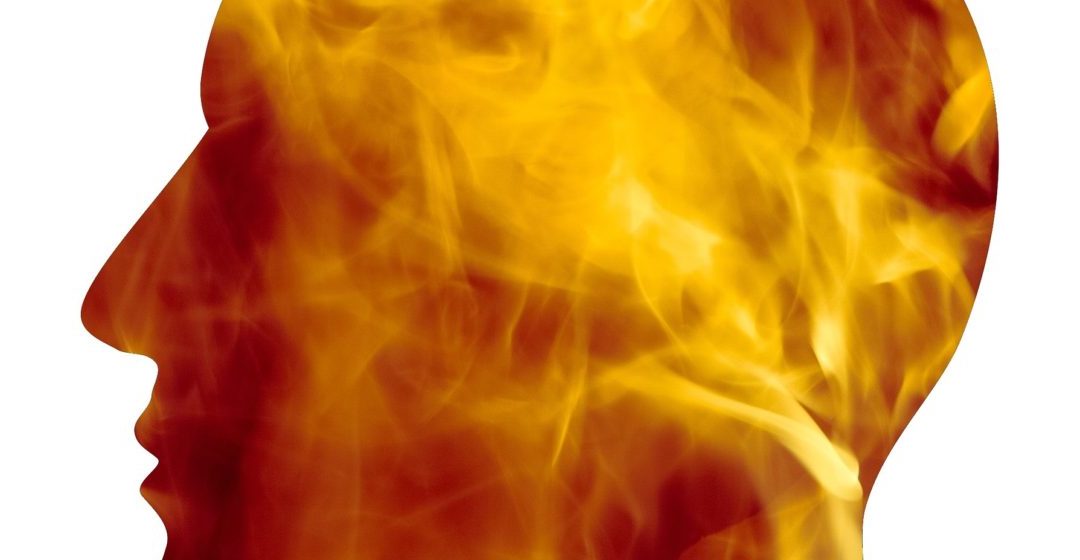One of the most misunderstood emotions, we take a look at anger today to understand it’s role in our survival and growth!
I chose to start with analyzing Anger since that is one emotion that almost all of us condemn and I have always had a soft corner for those criticized and considered weak.
What Do We Think About Anger?
Anger is considered to be a fiery emotion; one that is like a fire that burns you more than the person it is intended to harm. It is often said that anger does not solve any problem and causes the situation to get more complicated than it needs to be. It is also said that anger is the biggest enemy of an individual.
In fact, people who are labeled as calm are often called well-bred, intellectual, and sophisticated. On the contrary, those who do get angry are given labels such as ‘angry young man’, ‘out of control’, ‘impulsive, and ‘illiterate’.
Various kinds of research conducted on anger have shown how anger can cause hypertension, cardiovascular issues, worsen pain management, and lead to self-harm.
The denigration of anger emanates mostly from the physical manifestations of the emotion. It is seen as synonymous with aggression and violence. However, it is important to note that while anger is an emotion, aggression is a behavior.
Anger versus Aggression
Now that we have made the differentiation between anger and aggression, we may understand better how the actual emotion is not to blame.
We can feel angry without manifesting it externally. Each time we hear someone spreading a false rumor about us, feel angry, and choose not to slap them in the face, is a case where anger does not result in aggression. Every time we allow someone to cut us in traffic and not show the middle finger, we keep aggression under check.
Conversely, it is very possible to carry out heinous, violent crimes without being angry. All pre-planned and calculated crimes like stalking, robbing a bank, sexual assaults are often carried out without any emotions of anger on the part of the perpetrator. Here the perpetrator is looking for a specific gain for themselves that is not fueled by anger.
So, while anger is an evolutionary, physiological, and automatic reaction, wired into our bodies, aggression is a behavior that is a decision that we make based on how much we activate our free will.
The Necessity of Anger
While we may not be very keen to do that, there is a need to respect anger (in fact all emotions). Each of them is there for a reason.
Anger is not the fire that you burn in, but the fuel behind the fire. It is an emotion of approach (as against retreat) that warns you that something is not right.
It makes an appearance at times when you sense some injustice has been done, an unfairness is abound, or when your personal boundaries have been invaded.
Imagine a world where people did not feel anger. Perpetrators of crime would still commit crimes because all crimes are not motivated by anger. On the other hand, the victims would just roll over and not react or fight for a reprieve.
Anger is important for survival.
In fact, after deeper studies of anger, it has been understood that anger is not what causes hypertension and other physical issues. Repeated aggressive behavior and chronic repression of anger are what affect us negatively. (On a casual note, I once said to another – “You started getting high blood pressure issues after you started meditating and felt you HAD to control your anger. The repression of anger is what ended up causing hypertension”)
Managing Anger
Does this mean we should embrace anger and fly off the handle each time we think something unfair is happening around us? Well no! Remember anger is the emotion and aggression is the behavior.
The idea is not to demonize the emotion but to understand that it exists for a reason. There is no need to get upset with yourself each time you feel that deep sense of injustice or boundaries that have been invaded.
Here is what you should attempt to do:
- Be aware of the anger and heed the warning signal. Do not suppress it, avoid it, or negate it just because you think being angry is ‘bad’.
- Identify the source of anger correctly. Oftentimes we react negatively towards another entity because we are angry about something else.
- Frame a statement that clearly communicates what you are feeling angry about. This helps in understanding it better and also in communicating it to others.
- Decide on your course of action based on a conscious decision you take towards fanning your passion and correcting the situation.
It may feel that you may lose the anger if you sit down to take all these steps. In fact, what you may lose is the uncontrollable force that can sometimes lead you towards aggression.
By taking these steps (and falling prey to unintentional aggression), you can direct your anger, as the fuel it is, towards intentional action that is productive.


Recent Comments